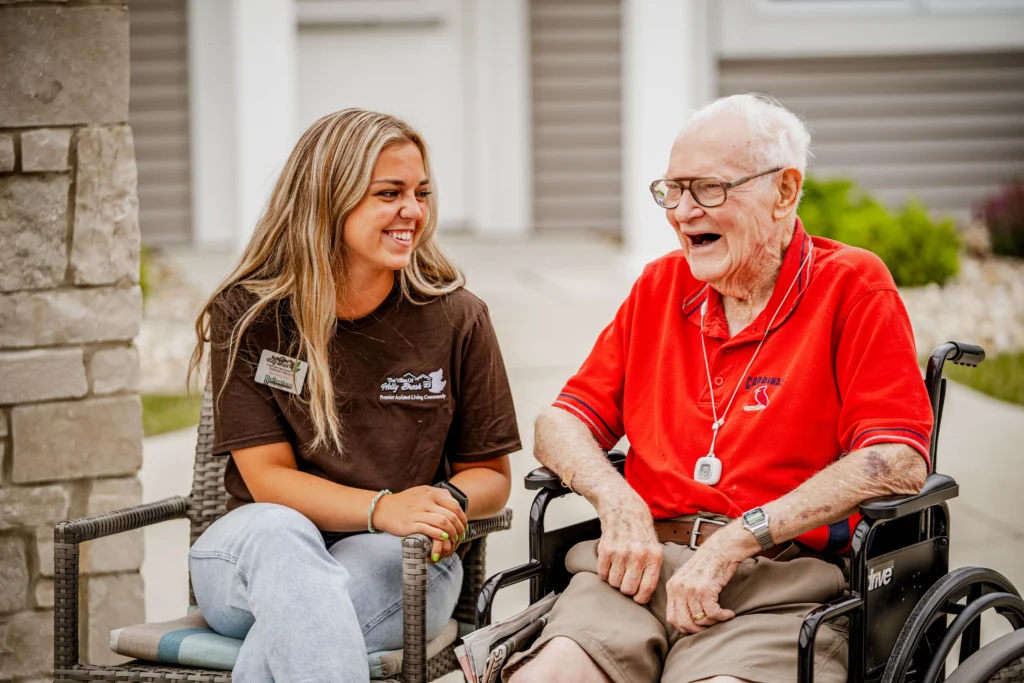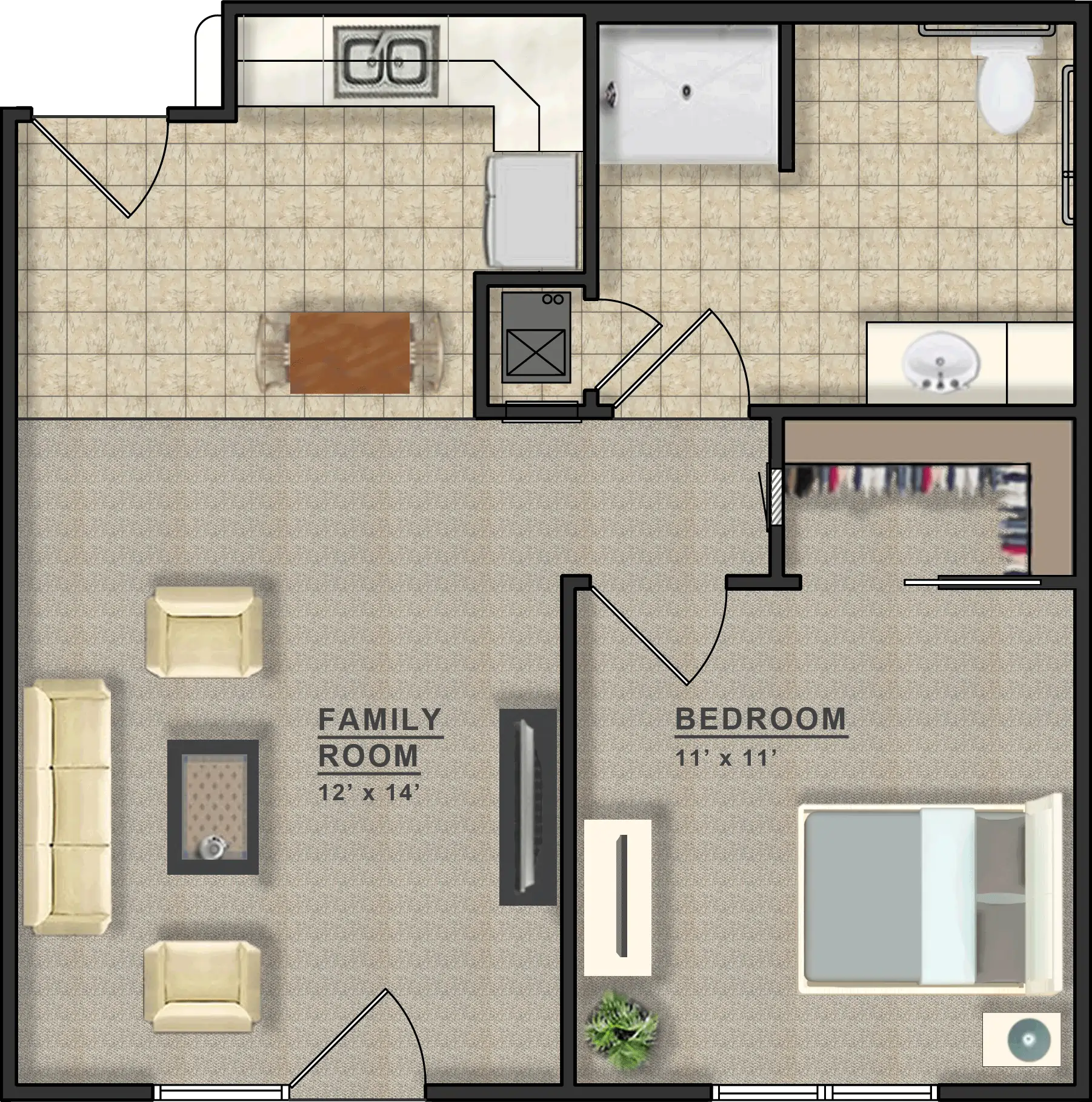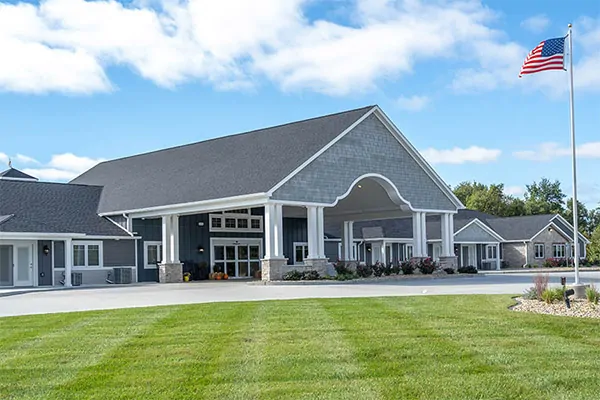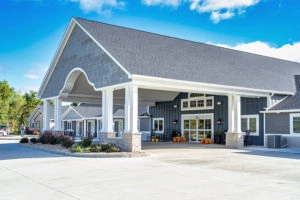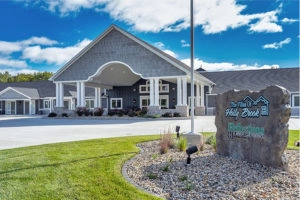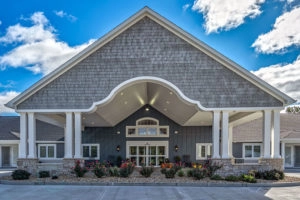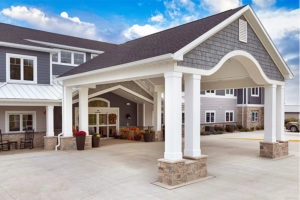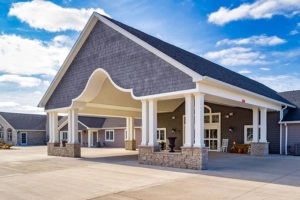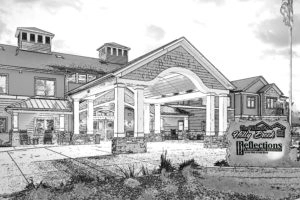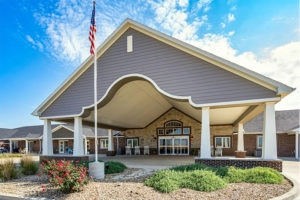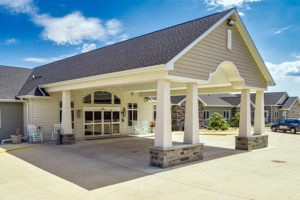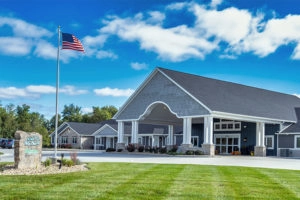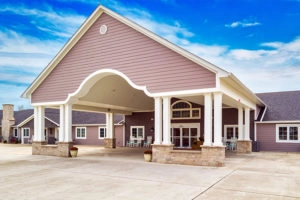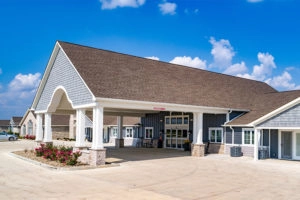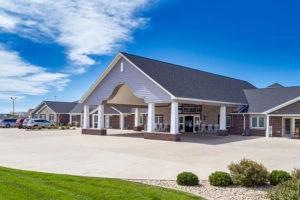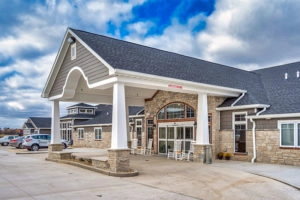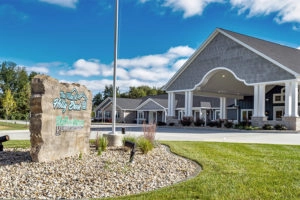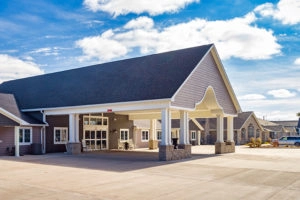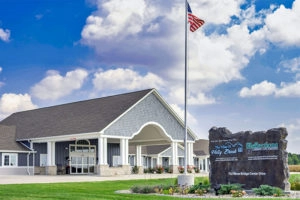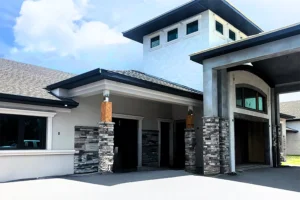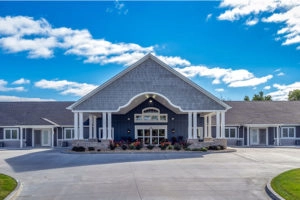Did you know that National Nurses Week falls in May? To us, it’s a time to celebrate the dedicated nurses and caregivers at The Villas of Holly Brook. We had the privilege of sitting down with two of our nurses to discuss their experiences and what it means to be a nurse in senior living.
As our population ages, the importance of quality care for seniors becomes increasingly apparent. Nurses are at the forefront of providing this care, particularly in senior living communities where residents often require specialized attention and support. In these interviews, we discuss the motivations and the daily life of a nurse dedicated to serving residents in senior living. By understanding the perspective of these caregivers, we gain insight into the compassion, dedication, and challenges inherent in their role, ultimately highlighting the crucial impact nurses have on the well-being and quality of life of our loved ones.
Why Senior Living?
Every nurse has a unique story about why they chose to work in senior living. For many, it’s the amazing connections they build with residents and their families. These bonds go beyond just care—they’re about trust, compassion, and real friendships. Other times, nurses are drawn to the warm and caring environment of senior living communities. It’s like being part of a big, loving family. The sense of community, the close relationships with colleagues, and the chance to provide personalized care in a home-like setting are all reasons why nurses love what they do.
When we asked Ashley, an LPN at our Charleston community, why she chose to be a nurse in senior living, she shared, “I started in healthcare at 16, and it’s really all I’ve ever known. I didn’t know where I wanted to work in healthcare, so I started in a nursing home and fell in love with the elderly.” She explained that she particularly enjoys being a nurse in assisted living because of the “one-on-one time you get to spend with them and their families.”
Others, like our Charleston Wellness Director, Kaity, know from a very young age that they want to be a nurse. Kaity fondly recalls, “When I was three years old, my mom had a paper cut…and I ran over and said, ‘Let me do it!’ I unwrapped the band-aid and put it on. My mom said, ‘Kaity, you did such a good job with that, how did you know how to do that?’ And I looked at her and said, ‘I is a nurse.'”
But no matter why they chose this path, all nurses share one thing: a deep passion for making a difference in the lives of seniors. Their dedication to improving quality of life, creating a sense of belonging, and providing compassionate care is truly inspiring.
A Day in the Life
A typical day for a nurse in senior care communities is filled with a diverse range of responsibilities and tasks that require both skill and compassion. From the moment they start their shift, nurses are dedicated to ensuring the well-being and comfort of residents under their care.
Our Nurse, Ashley, cares for residents on our Memory Care side. She shares about what a typical day looks like for her:
“I arrive at seven in the morning and start with the morning med pass, administering all the medications on the memory care side. Once breakfast is over, we have a few hours to make phone calls and sit with them while they do activities. I usually join them at the tables during these activities. This leads into lunchtime, when I distribute lunch medications. There’s some gap time in between where we get to spend more time with them. Sometimes, I get called over to help with things on the assisted living side. Essentially, you spend your whole day with them in their routine. Keeping them on a routine is really important too. Any change in their routine can cause them to struggle.”
Each of our communities also has a Wellness Director like Kaity. A typical day in her role looks like this:
“I usually arrive in the morning, and the first thing I do is check the communication board. It’s our way of sharing information between shifts, updating each other on what happened overnight and seeing if there’s anything I need to address. So that’s what I’ll do and plan my day from that. Honestly, I can set a schedule, but it doesn’t ever follow that. However, there are certain things like care plans that I work on every day. There are so many to complete each month, along with other tasks such as distributing medications that arrive from the pharmacy overnight. Then I wait and burn out any little fires as they come. I like to do a walkthrough of memory care to check in with everyone and make sure nobody needs anything.”
Overall, a day in the life of a nurse in senior living can be demanding yet deeply fulfilling. Their dedication and compassion are evident in every aspect of their work, making a positive impact on the lives of those they care for.
Overcoming Challenges
Working as a nurse in a senior community comes with its own set of challenges. One of the most common challenges is managing the complex healthcare needs of residents. Many seniors have multiple chronic conditions that require careful monitoring and coordination of care. Nurses must be adept at managing these conditions while ensuring that each resident receives personalized care.
Another challenge is communication, both with residents and their families. Effective communication is essential for building trust and ensuring that residents receive the care they need. Nurses must be able to communicate clearly and compassionately, especially when discussing sensitive topics such as end-of-life care or changes in health status.
Time management is also a challenge for nurses in senior living. With a wide range of responsibilities, including medication administration, wound care, and coordinating with other healthcare providers, nurses must be able to prioritize tasks and manage their time efficiently.
To overcome these challenges, nurses in senior living use various strategies, with teamwork being a key approach. Kaity emphasizes the importance of having supportive colleagues, noting that “having co-workers and people that you can talk to and laugh with” helps her get through challenging days. By collaborating closely with other caregivers, as well as with residents and their families, nurses can ensure that each resident receives comprehensive care.
Preventing Caregiver Burnout
One big challenge nurses can deal with in senior living is caregiver burnout. The job can be really demanding, and taking care of senior residents, both physically and emotionally, can be exhausting. Nurses have to juggle a lot, from giving medications to providing support to residents and families. All this can really wear them out over time.
Preventing burnout is crucial for nurses. Ashley emphasizes the importance of “taking my breaks” and “stepping away from work and having my family time and alone time” as key strategies for avoiding burnout. In her director position, Kaity focuses on her team’s well-being by ensuring that “every month we try to do something for the employees.” She also prioritizes her team’s morale by personally recognizing their achievements and “making them feel like people and appreciated instead of just coming to work, clocking in, and then going home.”
In addition to taking breaks and prioritizing personal time, nurses can prevent burnout by practicing self-care activities such as exercise, meditation, and hobbies that they enjoy. Seeking support from colleagues, friends, and mental health professionals can provide valuable emotional support. Setting boundaries, both at work and in personal life, can also help nurses manage their workload and reduce stress. Finally, creating a positive work environment where teamwork is encouraged, achievements are celebrated, and open communication is promoted can contribute to overall job satisfaction and reduce the risk of burnout.
Building Connections
Building connections is a key part of nursing in senior living. Nurses often become more than just caregivers; they become trusted friends and advocates for the residents. By genuinely interacting and listening to residents, nurses create a sense of belonging and comfort, which enriches their lives and improves the care they receive.
Getting to know each resident individually is crucial, as is understanding their families. Kaity, a Wellness Director, emphasizes the importance of personal assessments and involving families in care planning. She explains, “I try to involve family and get to know them to see what’s going to help best with them.” Kaity also stresses the significance of understanding their lifestyle and past, which helps in providing comprehensive care.
In their roles, nurses like Ashley recognize the importance of connecting with residents and their families. Ashley shares, “I get to talk to them and ask them about their life, their families, and their kids.” She finds these interactions rewarding, noting that residents often need companionship and someone to listen to them. Ashley believes that building strong relationships with families is crucial for establishing trust and ensuring the well-being of their loved ones.
Tips for Success
Ashley and Kaity both shared their insights on qualities that contribute to success in a nursing career in senior living. According to Ashley, being adaptable and “open to change” is crucial. She also stresses the importance of “being creative” in problem-solving, which is often essential in the dynamic environment of senior care and memory care.
Kaity highlights the significance of “being understanding” as a nurse, considering the diverse backgrounds and life experiences of residents. She emphasizes the importance of “meeting them where they’re at” and allowing residents to have a sense of autonomy in their care decisions. This approach not only respects the residents’ individuality but also fosters a sense of dignity and independence.
In addition to these qualities, effective communication skills, empathy, and a passion for helping others are also vital for success in nursing in a senior living home. Building strong relationships with residents and their families, as well as collaborating effectively with colleagues and other healthcare professionals, can greatly enhance the quality of care provided.


